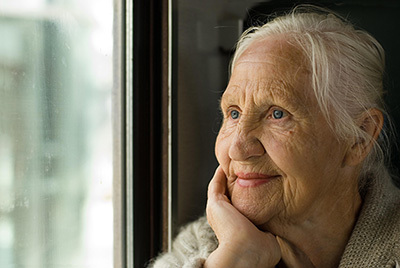The Benefits of Social Connection


The Benefits of Social Connection
Most people feel lonely at one time or another during their lives. Loneliness occurs when someone feels emotionally disconnected, even if they are around others. Carried to the extreme is social isolation, or living in a situation where you have almost no contact with other people. The latter is becoming increasingly more common for seniors, and it can have significant health consequences.

For years, researchers looked at the role that chronic loneliness can play in people’s health. Studies showed that chronic loneliness or chronic isolation both can cause inflammation, high blood pressure, and reduced immunity. Loneliness and isolation cause the release of hormones like cortisol and epinephrine. These natural stimulants are normally helpful because they make us more alert during temporary stressful situations. However, long-term production of these hormones damage our bodies and make our cells age faster. Heart disease is more likely when these hormones stay elevated.
People with greater social connection had a 50 percent reduced risk of early death. Chronic loneliness, social isolation and living alone were risk factors for early death that exceeded the effect of other well-accepted risk factors such as obesity or cigarette smoking.
Many things can help to reduce the risks of developing chronic loneliness or isolation.
People planning for retirement can look into what opportunities their community provides to develop new social connections. The goal is to replace the social connections at the workplace with those at a gym, club, community center, religious institution, volunteer position, or by being a mentor.
With current technology it is easy to stay in your home and not venture out. Food and any other item one might need can be purchased online and delivered. When this becomes a habit, it can reinforce fear and create a cycle of complete social isolation. Breaking the cycle is easy just by becoming a regular at your favorite restaurant rather than ordering take-out.
Research suggests that a valuable defense against loneliness is to look for ways to form stronger relationships with a few others, rather than casual connections with several. For today’s generation that would mean using Facebook’s messenger more than posting on your home page.
It may take a combination of people wanting to reach out and others being willing to extend a hand for seniors to create a new meaningful connection. Various community resources, designed especially for those with advancing age, are often available.
Regular visits from home health care providers is another way to reduce loneliness and social isolation. Home health care agencies provide trained professionals whose presence provides social and emotional interaction (along with their medical and therapeutic services). In-home caregivers help with basic activities such as hygiene and dressing, and provide mental and physical stimulation. Regular visits from home health care professionals or in-home caregivers also monitor their client’s mental and physical condition, and they relay that information back the family, or the doctor. This addresses issues earlier before something catastrophic and life-changing occurs.
Most importantly, understand it’s OK to ask for help. If you find you are feeling lonely or fear you are becoming isolated, reach out to family, friends and neighbors. Ask for recommendations on activities and groups (even online) that can help you connect with others. With a little help, you can find your way out of loneliness and into a fuller, more meaningful life.